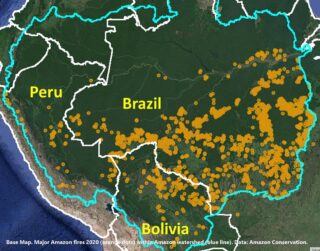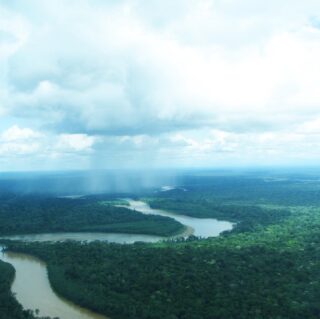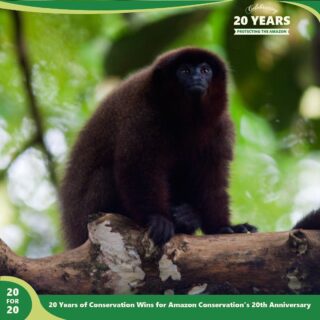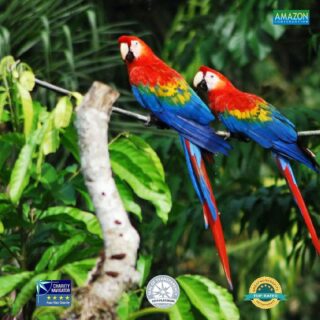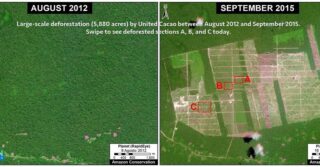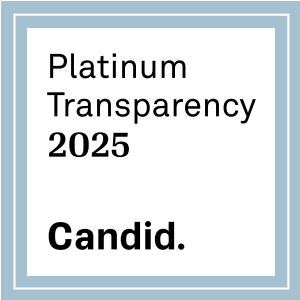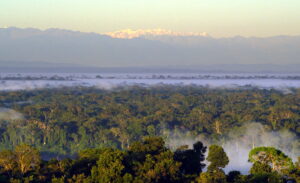
In our continuing effort to fight nature crimes across the Amazon, Amazon Conservation has endorsed an open letter to the UNCAC States Parties urging governments to adopt a resolution to prevent and combat environmental crime and corruption. This letter will be published and disseminated prior to the 10th Session of the UN Convention against Corruption’s Conference of States Parties (CoSP) that will be held from the 11th to 15th of December in Atlanta, Georgia.
The CoSP offers a key opportunity to bolster commitments by governments to tackle corruption and the environmental crimes it facilitates that harm the environment. We hope that endorsing this letter with other participating parties will raise efforts and encourage governments to strengthen accountability, governance, and protection measures to mitigate organized crime and direct nature crimes to protect the biodiversity and people who are heavily affected by this type of corruption.
This letter reads as follows:
Dear Delegates to the States Parties to the UN Convention Against Corruption,
We, [number of signatories] civil society organizations and experts across the globe, urge States Parties to adopt a resolution at the 10th UN Convention against Corruption (UNCAC) Conference of States Parties (CoSP) to prevent and combat corruption and the environmental crimes it facilitates as a crucial way to protect the environment, tackle the climate crisis and uphold human rights.
Corruption has a seismic impact on the environment and the climate. It enables crimes across complex supply chains that exploit wildlife, forests, fisheries and other natural resources and species. It is often linked to serious criminal networks that rely on corruption at every step of their global supply chain. It creates incentives to degrade nature, leading to the conversion and degradation of land and the building of infrastructure in biodiversity rich zones. Corruption is undermining efforts to address climate change at a time when the Intergovernmental Panel on Climate Change reports that human-induced climate change has “resulted in more frequent and more intense extreme weather events that have caused increasingly dangerous impacts on nature and people in every region of the world.”
Environmental crime and corruption negatively impacts human rights and impedes efforts to meet the Sustainable Development Goals. It robs some of the world’s poorest countries of revenues and resources and promotes a culture of violence towards communities, threatening the rule of law, public health and security. Land, environmental and indigenous defenders, whistleblowers, journalists, and other members of civil society face significant threats, attacks and killings in carrying out their work to expose environmental crime and corruption, often in a culture of impunity.
As the only legally binding anti-corruption instrument, the UNCAC is among the best tools available to prevent and fight the corruption that enables environmental crime and other environmental harms and its significant negative impacts on both people and nature. Building on UNCAC CoSP Resolution 8/12 (adopted in 2019), we call on UNCAC State Parties to adopt a strong resolution to bolster the implementation of the UNCAC to tackle environmental crime and corruption and its impacts. Such a resolution should call for the following actions:
- 1. Strengthen and more effectively implement anti-corruption, anti-money laundering and environmental protection laws across the value chain in the environmental sector and hold those accountable that are responsible for perpetuating environmental crimes and corruption, including companies and their representatives.
- 2. Strengthen transparency, integrity and accountability for awarding, granting, and managing contracts, concessions, permits and licenses in the natural resource sector. Create public, central beneficial ownership registers which include adequate, accurate and up-to-date data that is freely accessible and can be used by relevant stakeholders, as well as accountability frameworks, including conflicts of interest policies, political financing rules, and lobbying transparency.
- 3. Ensure a safe and enabling environment for civil society organizations and other actors working to expose environmental crime and corruption consistent with Article 13 of the UNCAC, including protection for whistleblowers, proactively engaging Indigenous Peoples and local communities and putting measures in place to routinely monitor threats facing civil society.
- 4. Promote good governance and anti-corruption measures to achieve climate mitigation and biodiversity conservation goals and in the proper management and use of climate finance funds and other finance mechanisms to protect the environment and biological diversity.
- 5. Promote greater coordination and cooperation with other relevant international fora and implementing agencies, in order to maximize impact in tackling environmental crime and corruption and to enhance understanding of how to address it, including the UN Framework Convention on Climate Change, the Convention on Biological Diversity, the Human Rights Council, the UN Convention against Transnational Organized Crime, the Convention on International Trade in Endangered Species of Wild Fauna and Flora, and the Financial Action Task Force.
As we commemorate the 20th Anniversary of the UNCAC’s creation, we urge you to take strong actions at CoSP10 to ensure that the UNCAC is utilized to its full extent to tackle one of the most pressing global challenges facing our planet and its people.
Sincerely,
Amazon Conservation, Washington DC

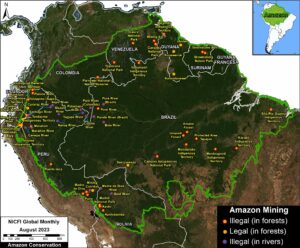
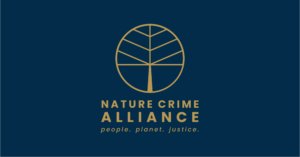
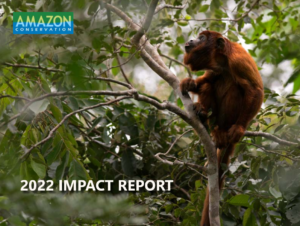

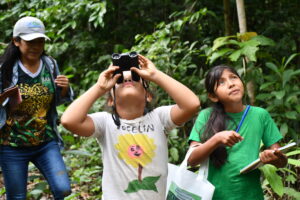 As we enter a fast-growing digital landscape, many organizations and non-profits have begun exploring new ways to secure funding to broaden their impact. Earlier this year, we implemented a new donation tool called
As we enter a fast-growing digital landscape, many organizations and non-profits have begun exploring new ways to secure funding to broaden their impact. Earlier this year, we implemented a new donation tool called 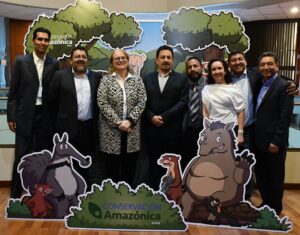
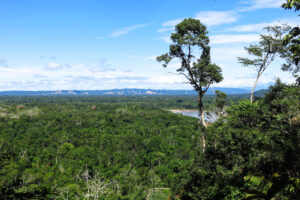
